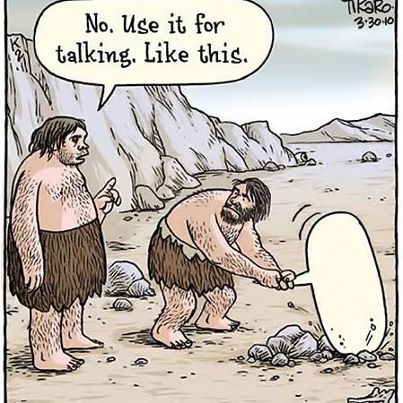While my back heals (or rather, while we wait to see if things have gone Lord of the Flies, and I'll need to introduce utter chaos to my family with back surgery), my mom has taken over all my inglorious mothering tasks to keep my three offspring alive. Fortunately, when she was here last year for the very same reason, we wrote a book together. Ta da! Aren't we crafty?
In case you are wondering how all that went down, we talked about our experience here. But I also wanted to give some general tips if you had considered doing it yourself. Because really, how hard could it be? Allow me to illuminate:
1.) Use the appropriate writing tool--What we mean here is pick a program that allows you both to write the document without the need to email back and forth all the time. We used Google Documents, and it was perfect. Google Docs lets you edit the same document together in real time. You can make comments, and the person you shared the document with will get email updates when you do, so they know where to find it. This was invaluable for us because sometimes we needed to write together. Or we would go through and edit together on the phone, making changes as needed. I'm not sure what else is out there, but this is free, and its a heck of a lot better than emailing and downloading who knows how many versions of the book in the process of writing it together.
2.) Plan meticulously--My mom is a pantser. If you don't know what that is, it means she likes to write "by the seat of her pants" instead of planning the details. I'm the opposite, and I like to map things out before I go anywhere. We butted heads on that a little bit, but in the end we both realized that detailed planning is essential when you are writing a book with someone else. You have to write down all that back story, the lore, the nefarious reasons for evil deeds, etc. Sometimes when we writers are hammering out a piece, we'll have all these things floating around somewhere in our heads, and they'll come forward when needed. But when you're writing with someone else, all that floating matter needs to be nailed down in a document so your partner knows what's up. Whatever method you use for planning, find it and use it! Use it a lot.
3.) Man up--Yeah, I said it. You gotta grow a pair. Your writing partner will see your work in all its stages, and that includes the parts so bad, you'd have to scrape them off of the bottom of your shoe before disposing of them. And when said partner points out your string of turd words, you're going to have to man up and not get offended. That takes a lot of practice. Or oblivious optimism. Whichever works best for you. Either way, you have to toughen up and take criticisms for the team, because without them, you'll just tell each other how lovely your dog poo is, and then hurl your feces into the face of agents, feelings in tact but writing reputations in doggy bags. That was a lot of poop metaphors. What I'm trying to say is clean up your crap, and don't get churlish about it. Honesty is what will take your work from fun writing exercise to serious novel.
4.) Read it out loud--Even though writing with someone else means you have two sets of eyes, there will still be things you both miss while going through the editing phases. What we found best was the long, and sometime grueling method of reading each chapter out loud over the phone. I would read her chapters, and she would read mine, and we were both able to catch a lot of errors that way. You have to mentally pull up your britches for this part, because it really does suck hearing your work read out loud for the purpose of being nitpicked. But painful as it is, it was necessary and super helpful. Take the time to do that before sending it to beta readers.
5.) Be respectful--I know I just did a whole speech about putting your big girl panties on when it
comes to honesty, but its also important to remember that this is your co-author's soul on paper, too, so try to be kind while you're shoveling the poop. Even though she's my mom and I'm her daughter, I sometimes had a hard time delivering my thoughts kindly, I think. I get that from my Dad. A spoonful of sugar and all that, people.
6.) Compromise--There will be times when your ideas don't jive. You'll want to take it one direction, and your partner will want to go another way. This is where things get really dicey, so I think your choice of writing partner is going to matter the most here. You need to choose someone who has similar (if not identical, preferably) tastes, and can think along the same lines. I know that diversity brings new ideas and all that, but at the same time, you need to come up with a cohesive plot that feels like it was written by one person. My mom and I are quite different, but we still like the same things, generally. So if she came up with an idea I didn't like, I would just try to take that element and tweak it. Same with her. Or I guess sometimes I would just flat out say, "That's interesting, but I'm not sure that's where I want this to go." It's hard, but that's where trust in one's partner comes into play. I don't suggest doing this with a friend, because friends can be offended. It's got to be someone where honesty won't hurt.
7.) Set aside specific times--I'm a busy mom, and my mother had a job, AND we lived in different time zones. So finding the right time was hard, but generally we would set aside 3:00 as writing times, and then if we needed more time that day, we would set aside a time after my kids were in bed. The important thing is that we carved time out to plot and write and edit. It would be even better if I had the luxury of considering this a job, and we professionally sat down somewhere every day to keep it productive and business-like. If you can swing that, totally do it! It will make things go much faster.
8.) Organize--We didn't do this originally, and we kept forgetting important plot points and stuff. Use spreadsheets and documents, make up character profiles with pictures (you'd be amazed how many times we forgot the physical characteristics of people), and even Pinterest. We used Pinterest for research and as a place to gather pictures and materials. I have a little tutorial on using Pinterest as a writer here. However you do it, write everything down, and make it easily accessible between the two of you so you can both get to the information whenever you need it. There's nothing more awkward than writing about a red-headed, green-eyed, gangly youth when he's supposed to be a burly brunette, and getting called out by your partner for total negligence.
9.) If you don't enjoy it, don't do it. If it turns out that this process is agonizing for you or your co-author, please do yourselves a favor. Don't do it! It's supposed to be fun, and fairly smooth as a process. If you're struggling to make it through a plot you don't like, or if you aren't getting along with your partner, it's going to show in the writing. So even if you start and it doesn't work out, that's okay! Nothing ventured nothing gained, you know. But it's a waste of both your time if you keep going with something that you aren't pumped up about.
10.) Symmetry--I needed a tenth something. So here it is. Because ten.
I hope that was a little helpful to you if you are thinking about writing a book with someone else. It's certainly a challenge, but it's dang fun, too!
And hey. You only have to do half the work. What's not to love? If you want to know more about our project Plane Walker, check out our initial introduction of it here.






Love this post! A friend and I were discussing writing a book together, and it emailing each other back and forth like you said would have been enough to put me off it, personally. Awesome tips... thanks :D
ReplyDeleteGlad I could help! Yes emailing back and forth sounds about as fun as a poke in the eye, so I don't blame you for avoiding it, either. If you do decide to go forward with your friend, the best of luck to you!
Delete